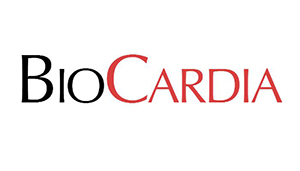 Johns Hopkins, the Maryland Stem Cell Research Fund and BioCardia (NSDQ:BCDA) said today that the 1st patient has been treated in a pivotal Phase III trial of the CardiAmp cell-based therapy for the treatment of ischemic heart failure.
Johns Hopkins, the Maryland Stem Cell Research Fund and BioCardia (NSDQ:BCDA) said today that the 1st patient has been treated in a pivotal Phase III trial of the CardiAmp cell-based therapy for the treatment of ischemic heart failure.
The investigational therapy was designed to deliver a dose of a patient’s own bone marrow cells directly to the area of cardiac dysfunction after a heart attack, according to BioCardia.
The San Carlos, Calif.-based company’s CardiAmp cell therapy combines a biomarker panel, a cell processing system for autologous bone marrow-derived cells and a transendocardial delivery system.
“This cell-based therapy offers great potential for heart failure patients,” co-principal investigator Dr. Carl Pepine said in prepared remarks. “We look forward to validating the impact of the therapy on patients’ quality of life and functional capacity in this important study.”
The 1st patient was treated at Johns Hopkins Hospital by a team led by Dr. Peter Johnston, a faculty member in the department of medicine and division of cardiology.
“Funding the clinical trial of this cell therapy, which could be the first cardiac cell therapy approved in the United States, is an important step towards treatments,” Dan Gincel, executive director of the MSCRF, added. “Through our clinical program, we are advancing cures and improving healthcare in the state of Maryland.”
The CardiAmp Heart Failure Phase III trial is slated to enroll up to 260 patients. The study’s primary endpoint is a significant improvement in the distance of a 6 minute walk at 12 months following treatment.

